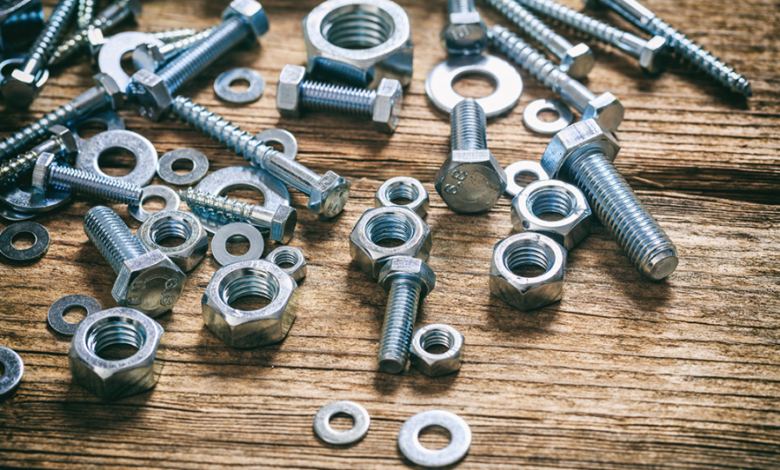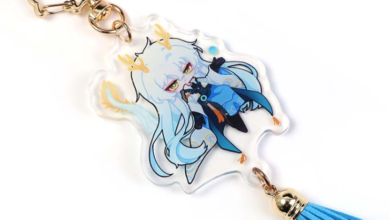Reliable Solutions from an OEM Bolt Supplier

Introduction
In the industrial and manufacturing sectors, bolts are essential components that help hold machines, structures, and systems together. From automotive assemblies to infrastructure development, bolts must meet strict safety and strength standards. When businesses require bolts for specialized needs, they often turn to an oem bolt supplier to get high-quality, custom-engineered fasteners. Choosing a trusted supplier ensures not only the mechanical integrity of the assembly but also optimizes production efficiency.
The Role of an OEM Bolt Supplier
An oem bolt supplier provides fasteners that are manufactured to Original Equipment Manufacturer (OEM) specifications. These suppliers are not just standard product distributors; they work closely with manufacturers and engineers to create bolts that precisely match specific dimensional, tensile, and material requirements. This is crucial for industries where standardized bolts won’t suffice, such as aerospace, automotive, marine, and heavy machinery sectors.
An oem bolt supplier helps reduce costs in the long run by improving product performance and minimizing failure rates. Their expertise in metallurgy, coating technology, and tolerances ensures the bolts are tailored for precise applications.
Why OEM Bolts Are Preferred
Unlike general fasteners that come in fixed sizes and materials, OEM bolts are engineered for a specific job. Several reasons make OEM bolts preferable:
- Exact Fit and Function
OEM bolts are built to detailed blueprints or specifications provided by the client. This means the end product meets dimensional and strength standards without the need for post-manufacturing adjustments. - Enhanced Material Selection
An oem bolt supplier offers a range of material options including stainless steel, carbon steel, titanium, and alloy-based materials. Each material can be selected depending on environmental conditions such as high heat, chemical exposure, or pressure extremes. - Consistency in Quality
When bolts are made for OEM purposes, suppliers enforce strict quality control procedures. This consistency ensures that each batch of bolts performs identically, crucial for sensitive or critical applications. - Traceability and Certification
A reputable oem bolt supplier provides documentation that includes traceability reports, material certifications, and compliance with international standards like ISO, ASTM, or DIN. This level of transparency builds trust and regulatory compliance.
See also: Smart Home, Smart Living: How Tech Is Transforming Home Upgrades
Key Industries Served
Many industries rely on the technical capabilities and reliability of an oem bolt supplier. These include:
Automotive
OEM bolts are used in engines, chassis, suspension systems, and transmission units. These bolts must endure heat, vibration, and torque without loosening or failing.
Aerospace
In aviation, bolts must withstand intense stress and pressure while maintaining minimal weight. Aerospace OEM bolts are manufactured with precise tolerances and aerospace-grade materials to meet FAA or other regulatory guidelines.
Oil and Gas
Bolts used in oil rigs, pipelines, and offshore structures must resist corrosion, pressure, and wear. An oem bolt supplier for this industry offers high-strength bolts with protective coatings or special alloy compositions.
Construction
OEM bolts in structural steel frameworks, bridges, and building supports must comply with load-bearing and seismic performance standards. Customized bolts are often required for heavy-duty and safety-critical uses.
Medical Equipment
Though smaller in scale, medical devices often require miniature fasteners with high precision. An oem bolt supplier catering to this industry must comply with hygiene, biocompatibility, and corrosion resistance standards.
Customization Capabilities of OEM Bolt Suppliers
A modern oem bolt supplier is expected to provide a range of customization services. Some of the key capabilities include:
- Design Support
Suppliers assist clients in modifying or refining designs for better performance or cost savings. - Thread Styles
Options for coarse, fine, metric, and custom threading allow bolts to be optimized for the application. - Heat Treatments
Processes like annealing, quenching, and tempering enhance bolt strength or fatigue resistance. - Plating and Coatings
Zinc, chrome, phosphate, or Teflon coatings can be applied to meet corrosion resistance or aesthetic goals. - Batch Sizes
OEM suppliers typically accommodate both low-volume prototypes and high-volume production runs, offering flexibility to R&D and full-scale manufacturing alike.
How to Choose the Right OEM Bolt Supplier
Choosing an oem bolt supplier requires more than checking catalogs or prices. Here are the main factors that should be considered:
Technical Expertise
The supplier should have in-depth knowledge of bolt manufacturing, engineering tolerances, and materials. Their experience across industries can also help in offering technical guidance.
Customization Range
Can they manufacture a wide range of bolt types like hex bolts, U-bolts, carriage bolts, or shoulder bolts? A good supplier offers variety and customization to meet niche demands.
Certifications
Look for suppliers with ISO certifications, in-house quality control labs, and documentation for traceability. These assure reliability and consistency in production.
Lead Times and Logistics
Efficient order fulfillment and global shipping are crucial for smooth production lines. Ensure the supplier can handle delivery timelines, bulk orders, and emergency shipments.
Customer Support
Strong after-sales support, responsiveness to queries, and clear communication channels are indicators of a supplier’s reliability and business ethics.
Cost Versus Value
While cost is always a consideration in sourcing, the lowest price does not always equate to value. An oem bolt supplier offering quality assurance, precision manufacturing, and long-term durability delivers greater overall savings. Inferior bolts may lead to operational failures, product recalls, or structural damage—consequences that far outweigh initial cost savings.
Moreover, OEM suppliers often provide cost-saving suggestions such as switching to alternative materials, reducing machining steps, or offering combined packaging solutions.
Future Trends in OEM Bolt Supply
As global industries continue to evolve, oem bolt supplier services are adapting to meet new challenges. Some of the emerging trends include:
- Smart Fasteners
Integration of sensors within bolts to monitor stress, temperature, or vibration. - Sustainable Manufacturing
Eco-friendly coatings, reduced waste production, and recycling initiatives are gaining importance. - Digital Inventory Systems
Real-time order tracking, automated reordering, and digital documentation improve efficiency. - Global Compliance
With increasing export demands, suppliers are now aligning with various international standards like RoHS, REACH, or ASME.
Conclusion
An OEM bolt supplier plays a vital role in ensuring that industrial and commercial products operate reliably and safely. From aerospace to construction, these suppliers offer bolts tailored to precise engineering standards, ensuring functionality, durability, and compliance. Choosing the right partner is an investment in quality, performance, and peace of mind. For any business requiring specialized fasteners, aligning with a trusted OEM supplier is not just a smart move—it’s a necessity.





